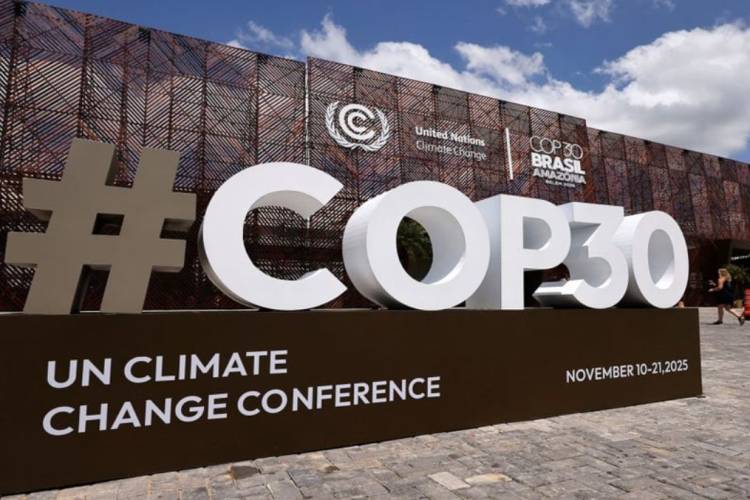
The COP30 summit in Belém has reopened the oldest and most consequential debate in global climate politics — who pays for the transition. As technical negotiations over the Global Stocktake continue, India has reasserted the issue of climate finance, reminding the developed world that their $100 billion-a-year pledge is more than a broken promise — it is a symbol of eroded trust.
The original $100 billion commitment, due in 2020, was met two years late and largely through loans rather than grants. That failure weakened confidence in global cooperation. India, aligned with the G77 + China, is calling for a New Collective Quantified Goal (NCQG) that reflects present-day needs for mitigation, adaptation, and the Loss and Damage Fund agreed at COP28.
READ | India’s power grid bottleneck is stalling clean power
The OECD estimates developing economies require over $1.3 trillion annually to achieve their climate and development goals — nearly six times current flows. The $300 billion floor for 2035 discussed at COP29 is therefore insufficient, both morally and economically.
India’s credibility and clean-energy leadership
India enters COP30 with a stronger record than most. It has already achieved nearly 190 GW of renewable capacity and is on track to reach 500 GW of non-fossil sources by 2030. It has launched global coalitions such as the International Solar Alliance (ISA) and the Coalition for Disaster Resilient Infrastructure (CDRI), and has issued sovereign green bonds to finance domestic transitions. This progress lends credibility to India’s demand for a predictable, rules-based finance architecture that matches national ambition.
While public finance remains the foundation, India argues that the multilateral development banks (MDBs) and private investors must play a larger role. Reforming the World Bank and IMF to unlock concessional lending, expanding blended-finance models, and scaling green-bond markets are central to bridging the $1 trillion gap. Public funds from the Global North should be used to de-risk private capital, enabling large-scale projects in developing economies.
The widening finance gap and data distortion
The International Energy Agency (IEA) estimates that clean-energy investment in emerging and developing economies must triple from $770 billion in 2022 to $2.2–$2.8 trillion annually by the early 2030s. Yet, the definition of climate finance remains contested. Many developed nations double-count loans, export credits, or market-rate funding as climate support. India has therefore demanded a universally accepted definition and a transparent MRV system (Measurement, Reporting, Verification) to track genuine financial flows under Article 9.1 of the Paris Agreement.
Finance alone cannot deliver a just transition. India and the G77 emphasise technology transfer and capacity building as essential for equity. Affordable access to advanced clean technologies — from hydrogen electrolysers to carbon-capture systems — remains limited by intellectual-property barriers. The Technology Mechanism under the UNFCCC has achieved little without dedicated finance and institutional backing.
Adaptation and justice at the centre
India’s stance at COP30 highlights that adaptation finance needs are up to 15 times greater than current global flows. The Loss and Damage Fund, operationalised after COP28 with pledges of only about $700 million, is far from adequate. Unless backed by binding replenishment mechanisms, such initiatives risk becoming symbolic gestures. The principle of Just Transition — ensuring climate action does not penalise the poor — will ring hollow without resources to build resilience in vulnerable communities.
The politics of COP30 extend beyond numbers. The Brazilian presidency has framed this as the “COP of Truth,” seeking consensus amid global divisions. The European Union’s Carbon Border Adjustment Mechanism (CBAM) and the uncertainties of a US election year cast a long shadow over trust. Meanwhile, China positions itself as both a developing economy and the largest emitter, complicating bloc alignments. India’s pragmatic diplomacy lies in balancing cooperation with assertion — pressing for equity without derailing progress.
A test of credibility
The impasse over finance now threatens the credibility of the Paris Agreement itself. Without radical reform and scaled-up funding, the global compact could collapse under its own contradictions. India’s demand is not for charity but for justice: that those who created the problem fund its solution.
Climate finance is not an optional extra — it is the cornerstone of every mitigation and adaptation goal. The world no longer debates whether to act, but whether it will enable others to act. The success of COP30 will depend on whether rich nations move from rhetoric to responsibility, converting delayed promises into measurable commitments backed by real money.
If they do not, the “just transition” will remain a promise deferred — and climate cooperation will fail not for lack of technology or intent, but for lack of honesty.
